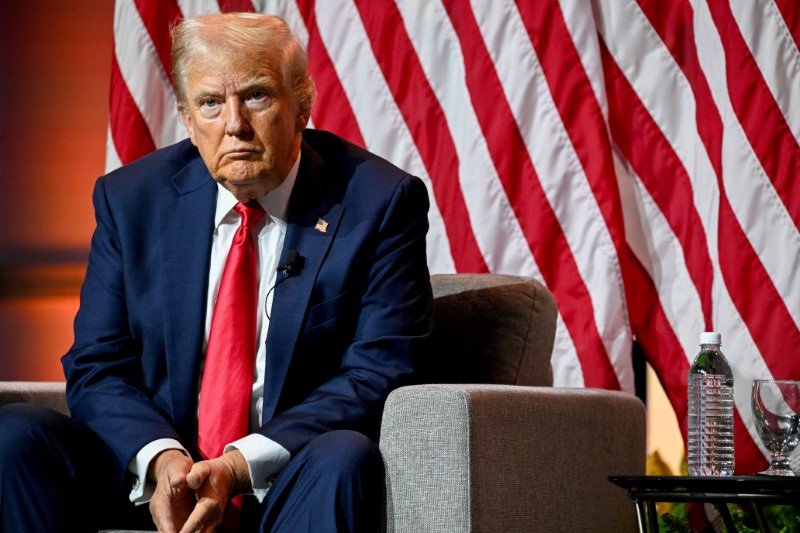Investing.com -- The presidential debate between Vice President Kamala Harris and former President Donald Trump has led to Trump Media & Technology Group (NASDAQ:DJT) shares to plummet by more than 16% on Wednesday.
The debate concluded with Kamala Harris being declared the winner in CNN’s flash poll by a margin of 63-37. Despite this clear victory, the debate's long-term impact on the election remains uncertain.
Analysts from Wolfe Research and Raymond James flag that Trump's debate performance was marked by several missteps that contributed to TMTG's shares decline.
Trump’s performance was characterized by a lack of focus, with frequent diversions from his core arguments. His controversial remarks and off-topic distractions undermined his effectiveness and may have diminished investor confidence in TMTG.
“He (Trump) certainly hammered the Biden record, especially on inflation, immigration, and chaos abroad—but he lost focus on his main arguments about Harris herself, and missed several layups throughout the night because he got distracted,” said analysts at Wolfe Research.
This was further exacerbated by his increasingly agitated demeanor, which analysts believe could have alienated moderate voters and investors alike.
Raymond James added that Trump's inability to present a coherent message on critical issues and his focus on contentious topics likely contributed to a negative shift in investor sentiment.
Trump’s continued support for additional tariffs, described by Harris as a “Trump sales tax,” raised concerns about economic impacts. While tariffs are expected if Trump wins, the specifics regarding their amount and timing remain uncertain.
Raymond James emphasized that the goals behind Trump's tariff policies, such as funding tax changes or addressing currency valuation issues, could influence economic projections.
The debate featured a discussion on energy policies, with Trump expressing skepticism about green energy and continuing support for fracking.
Harris flagged achievements like increased U.S. oil production and the Inflation Reduction Act (IRA), which supports green energy.
Both analysts noted that Trump's stance on energy could impact market expectations for future energy policies.
Key topics included Ukraine, Israel, and the Afghanistan withdrawal. Harris’s limited disclosure of her foreign policy positions contrasted with Trump’s push for increased NATO spending.
Trump’s focus on stricter immigration limits versus Harris’s support for a border bill had implications for economic growth and labor markets. Both analysts stressed that immigration policies could influence market expectations and TMTG's stock performance.
Harris briefly discussed tech restrictions, particularly concerning semiconductor production and national security.
Trump’s criticism of the Affordable Care Act (ACA) and his vague references to a replacement plan contrasted with Harris’s emphasis on strengthening the ACA and capping costs for insulin and prescription drugs.
